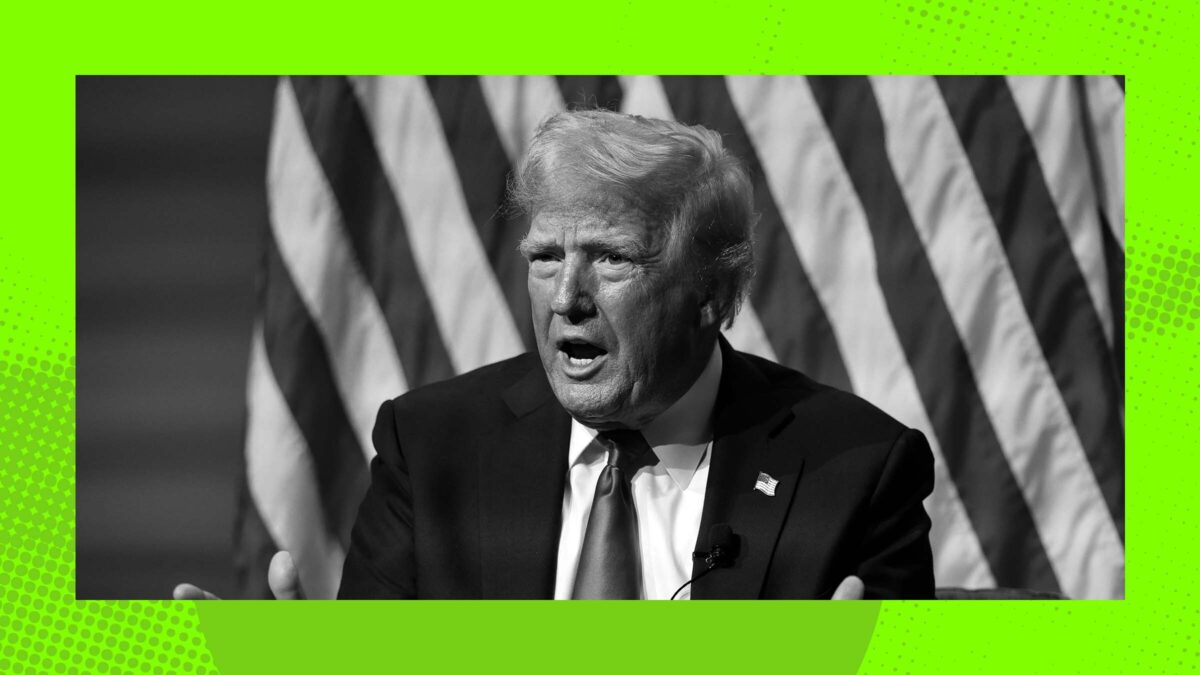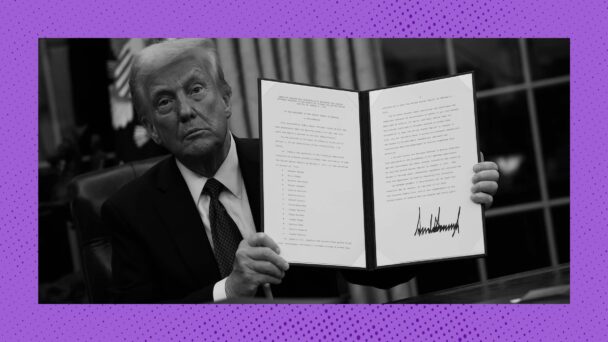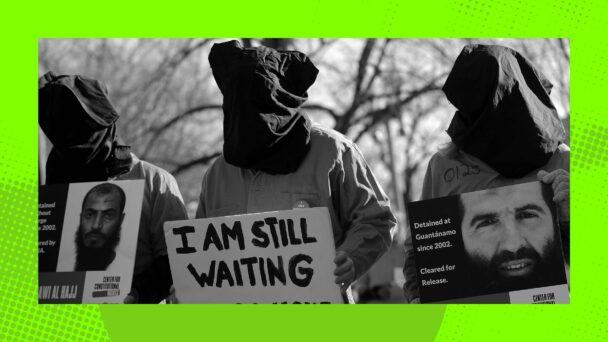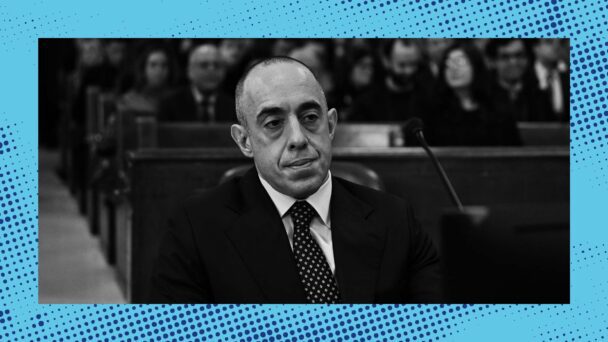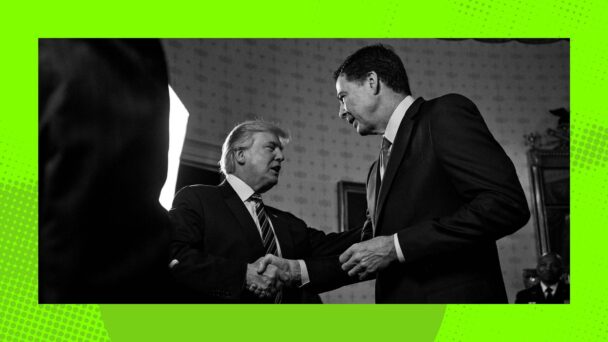On January 27, the U.S. Office of Management and Budget sent a memo to the heads of all executive departments and agencies with a subject line reading, “Temporary Pause of Agency Grant, Loan, and Other Financial Assistance Programs.” This memo directed federal agencies to stop disbursing funds and claimed that the Biden administration had been squandering federal resources on advancing “Marxist equity” and “transgenderism,” thus continuing the long and storied tradition of Republicans pretending Democrats are cooler than they are.
On top of being untruthful, the OMB Memo was unlawful. By ordering a massive “funding freeze,” the Trump administration claimed Congress’s constitutionally delegated appropriations power for itself. Trump’s illegal directive threatened incalculable harm to the thousands of institutions that receive federal funds and the tens of millions of people those institutions serve, and has already cost lives. On February 11, The Telegraph reported that a 71-year-old refugee named Pe Kha Lau died after she was discharged from a federally-funded hospital in Thailand where she received oxygen for the past three years. Another federal employee working in the government’s HIV/AIDS programs said that, because of the freeze, “At a minimum, 300 babies that wouldn’t have had HIV, now do.”
The legal backlash was immediate. The day after the memo went out, the U.S. District Court for the District of Columbia temporarily blocked it from going into effect. Separately, nearly two dozen state attorneys general filed a lawsuit in Rhode Island district court requesting an emergency temporary restraining order. The day after that, OMB released a new memo purporting to rescind the earlier memo. For a fleeting moment, this looked like a victory for democracy and the rule of law. But then, White House Press Secretary Karoline Leavitt posted on social media that the administration had only rescinded the memo “to end any confusion created by the court’s injunction,” and that the freeze remained in effect.
In response to this chicanery, on January 31, the judge in the Rhode Island case issued an order seeking to make the administration’s legal responsibilities extra clear. “The evidence shows that the alleged rescission of the OMB Directive was in name-only and may have been issued simply to defeat the jurisdiction of the courts,” wrote Judge John McConnell, an Obama appointee. McConnell entered a temporary restraining order barring the administration from freezing financial assistance to the states, directing it not to impede the states’ access to the funds, and prohibiting it from “giving effect to the OMB Directive under any other name.” Basically, McConnell ordered the Trump administration to cut the shit.
A week later, the shit has not yet been cut. The state litigants presented the Rhode Island court with evidence that, in at least some cases, the administration has “continued to improperly freeze federal funds and refused to resume disbursement of appropriated federal funds.” So on February 10, McConnell found that Trump violated “the plain text” of his January 31 order, and again ordered the administration to immediately restore any frozen funds. McConnell also quoted a 1975 Supreme Court decision, while making liberal use of bold and italics: “It is a basic proposition that all orders and judgments of courts must be complied with promptly.”
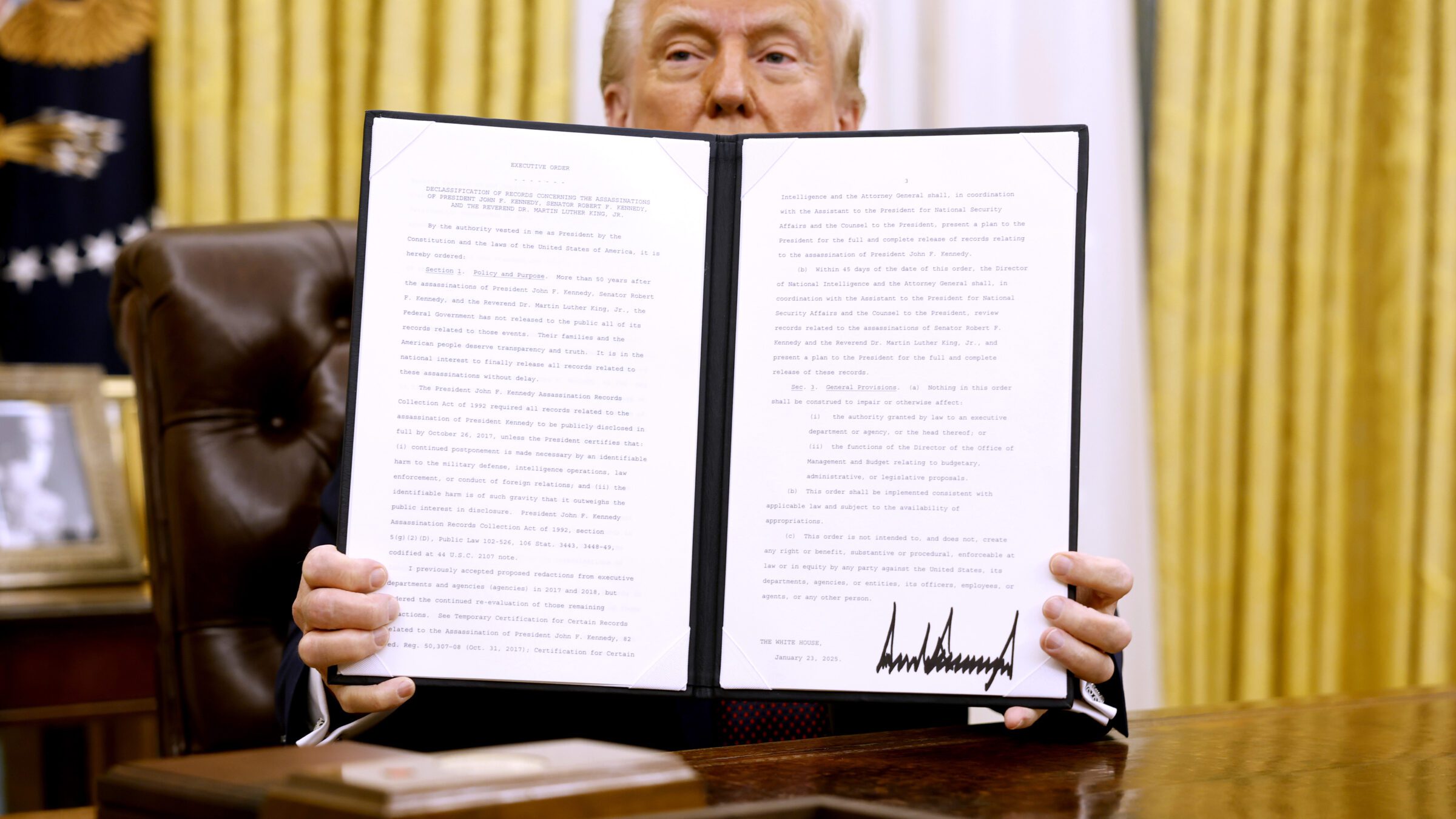
(Photo by Anna Moneymaker/Getty Images)
Trump clearly has other plans. Hours after Judge McConnell’s second order, a senior official at the Federal Emergency Management Agency instructed employees to put holds on all open funding awards. That same day, the National Institutes of Health canceled all meetings to approve critical biomedical research; not until Wednesday did NIH officials relent and admit that the funding freeze is indeed unlawful. In a letter to the Office of Management and Budget last week, Colorado Governor Jared Polis and Senators John Hickenlooper and Michael Bennet said that $570 million of obligated funding remained inaccessible in their state alone.
On February 11, Trump told reporters that he will “always abide by the courts.” But there is little reason to put much stock in Trump’s assurances, as high-ranking members of his administration and others in their orbit are already floating the idea that the executive branch should ignore court orders enjoining the administration’s illegal schemes.
On Fox News, for example, White House Deputy Chief of Staff Stephen Miller described one such ruling as “unconstitutional” and “an assault on the very idea of democracy itself.” Vice President JD Vance tweeted that “judges aren’t allowed to control the executive’s legitimate power.” Referring to a court order blocking Elon Musk’s “Department of Government Efficiency” from accessing Treasury payment systems, Trump told reporters, “No judge should frankly be allowed to make that kind of a decision.” Musk himself retweeted a post from an account called “Insurrection Barbie” that asked, “I don’t like the precedent it sets when you defy a judicial ruling, but I’m just wondering what other options are these judges leaving us if they’re going to blatantly disregard the constitution for their own partisan political goals?”
Openly gearing up for judicial noncompliance has made a handful of Republicans a bit antsy: As Trump edges closer to openly defying courts, Senators Chuck Grassley and Josh Hawley and Senate Majority Leader John Thune have all expressed some degree of trepidation about their party’s leader doing so. But Republicans’ openness to ignoring rulings didn’t come out of nowhere. As early as 2021, Vance was saying that Trump should do as he wished, and “stand before the country like Andrew Jackson” if the courts tried to stop him—a reference to Jackson’s infamous decision to ignore a Supreme Court decision recognizing the sovereignty of Cherokee Indians, and to forcibly remove them from their land anyway.
The Trump White House also has conservative pundits and academics who are happy to argue that his understanding of the law is somehow correct. Yale Law professor Jed Rubenfeld said Vance was “exactly right,” and that “judges cannot constitutionally interfere” with Trump’s funding freeze. Berkeley Law professor John Yoo, most famous for supplying the George W. Bush administration with legal scaffolding to justify torture, argued in the National Review that the freeze “could help restore the system the Founders envisioned.” On X, conservative activist Ed Whelan called the prospect of a president ignoring a court order a “grave matter,” but ultimately said he was “open to the argument” that defiance might be justified in “truly extraordinary circumstances.”
The United States theoretically has a tripartite system of government, with power shared between three branches so that too much authority is not concentrated in one. But Republicans are spurning the “basic proposition” Judge McConnell described in an effort to consolidate power in the hands of Donald Trump and Donald Trump alone. If the executive branch is free to ignore both laws passed by the legislature and rulings made by the judiciary, checks and balances do not exist. The Trump administration’s continuance of the funding freeze demonstrates its frightening disdain for legal constraints, and further hastens the country’s devolution from democracy to autocracy.
